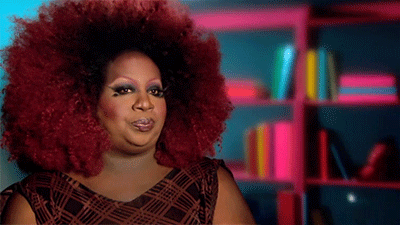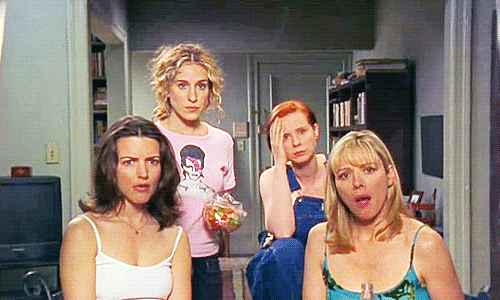1. "HIV/AIDS is a death sentence."

In the 1980s and early 1990s, there was little to no treatment available and the AIDS death rate was very high. Now, over thirty medications have been approved by the U.S. government to fight HIV and AIDS, with many more in development.
2. "If I take birth control, I won't get HIV."

There are many tools in what we in the field call the "prevention tool belt" that can help prevent the transmission of HIV, but birth control is not one of them. It's best to know how to put on a condom , so that it does its best to protect you. Also, while birth control does not fight HIV, there are two other pills that can help fight HIV. One is PrEP (pre-exposure prophylaxis), a once-daily pill that is taken to prevent HIV infection, and the other is PEP (post-exposure prophylaxis), which is taken after exposure to HIV to prevent infection.
3. "I heard you can get HIV through kissing, from drinking out of the same cup as someone with HIV, or by sharing a plate with someone who has HIV."

HIV transmission can only happen a couple of ways, and the two most common are unprotected sex and sharing needles. For HIV infection to occur, you need two things: a transmission fluid (semen, pre-ejaculate, breastmilk, vaginal fluids or blood) and a port of entry (mouth, vagina, anus, veins). There has never been a documented case of infection of HIV from saliva.
4. "Women who are HIV positive can't -- and shouldn't -- have babies."

Though HIV can be transmitted from mother to child, it is completely possible -- and completely normal -- for positive mothers to give birth to happy, healthy babies. There a number of options available for HIV-positive women looking to have children.
5. "You can have 'full-blown AIDS.'"

Let's just back up and go over some basics for a minute: HIV is a virus -- it stands for Human Immunodeficiency Virus. AIDS stands for Acquired Immune Deficiency Syndrome and is a diagnosis that is given to someone with HIV when one of two things happen: You have less than 200 white blood cells (also known as CD4 cells) or if you get an opportunistic infection. You cannot have "full-blown AIDS." You either have an AIDS diagnosis or do not. If you have HIV and are in danger of having AIDS, or are given a concurrent AIDS diagnosis, a doctor will recommend you start treatment to regain those white blood cells.
6. "People who have HIV cannot have sex with people who do not have HIV."

The truth is many people who have HIV have sexual relations with HIV-negative people. Condoms weren't meant to protect negative people from other negative people! Condoms are one part of prevention, but another big part of HIV prevention is called "treatment as prevention." That means an HIV-positive person can lower their chance of transmitting the virus, by up to 96%, by simply taking their meds.
Many people are in "serodiscordant" relationships, or mixed-status relationships, where one person is negative and the other is positive. They are normal and beautiful.
7. "It's okay to have unprotected sex if you and your partner are both positive."

Many people are unaware of HIV superinfection, which happens when an HIV-positive person is infected by a second strain of HIV. HIV can evolve differently in each person's body; if it mutates, a different strain can emerge. Using condoms and taking HIV meds, like we discussed before, helps keep this worry at bay.
8. "HIV was created to kill the gay/black/Latino/immigrant/injection-drug-using/etc. populations."

HIV infection can happen to anyone. And while it can happen to anyone, HIV disproportionately affects many populations, but that is no fault of the populations themselves. Many societal factors, including poverty, access to education, access to quality health care, geographical location , and racism can put many other groups at high risk for HIV infection. African Americans unfairly shoulder much of the burden of the HIV epidemic, as well as gay men and Latinos.
9. "I can't get HIV. It's a gay/black/drug user's/[insert community here] disease."

As we said before, HIV can happen to anyone, even if you don't think you're at risk. Here at TheBody.com, we have a series called, "This Positive Life," where people with HIV give a face to the epidemic, and many talk about how they didn't think they were at risk. Some people were happily married when infected. Some people were diagnosed much older and face living their 50s with HIV. And some were diagnosed at a time when few women were turning up positive. It's important to know that no matter how healthy or how good someone looks, you should protect yourself.
10. "Straight women only get HIV because their men are on the down-low!"

Ugh, don't get us started on the down-low. The problem with the down-low is not whether or not it actually exists, but that it is always tied to the HIV epidemic and to the black community with very little data to support that claim. If you really believe in the down-low, then you have to believe in something else: homophobia and stigma. If things like the down-low make you angry, then you should be angry that there are communities in which homophobia and stigma are so ingrained that people are not allowed to live as their true selves. You can read about the various factors that really fuel the HIV epidemic in Black America.
11. "HIV/AIDS is a chronic manageable disease… just like diabetes!"

Let's get this straight -- with treatment, HIV/AIDS is a chronic manageable disease. However, unlike HIV/AIDS, having diabetes does not have nearly as much stigma attached to it. HIV stigma is any feeling of disgrace/shame/dirtiness associated with someone who is HIV positive. People with HIV are often met with violence, legal action, job loss, betrayal from former partners and more. Many of our bloggers have spoken about the problem of stigma. Some of our bloggers even wonder if there can be such a thing as Positive Pride!
12. "HIV is a punishment from God!"

HIV is not a punishment for anything. It is a disease that millions of people in the US live with everyday. Some clergy even live with HIV! One of our bloggers is a clergywoman living with HIV -- who openly discusses her experiences in faith communities. Many people believe that churches should be the leaders in the fight against HIV in their communities. Also, many theologians are wrestling with how a good Christian should respond to the HIV epidemic.
13. "I heard there's a cure out there that's being withheld."

Now more than ever, HIV cure chatter is starting to bring hope to a lot of people. Though it is good to talk about the HIV cure, we have to realize that that is something that will be solved in a laboratory, and there's a lot to do on the ground for those living with HIV or at-risk for infection. There are hundreds of doctors looking into an HIV cure, and they're not working for something that already exists!
14. "HIV isn't real."

Yes, HIV denialism is real, unfortunately. Won't even respond to this one. Just, no.
15. "You can use alternative medicines to treat HIV exclusively."

Many people do treat symptoms of HIV with alternative medicines -- HIV medicines can have plenty of side effects. But to use alternative medicine exclusively can be dangerous.
You have all the knowledge you need to go out and start myth-bustin'! Congratulations! 

